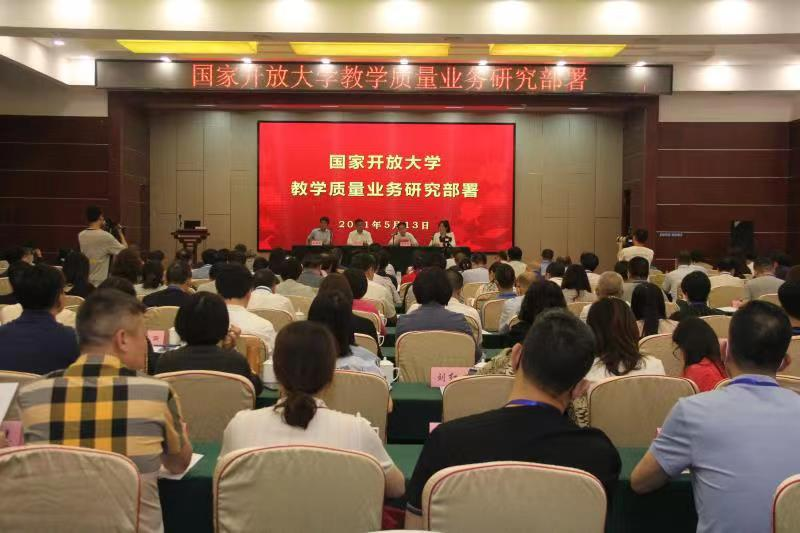 On 13-14 May 2021, the Open University of China (OUC) conducted a collective study and deployment of 2021 teaching quality control work in Ningde, Fujian Province.
On 13-14 May 2021, the Open University of China (OUC) conducted a collective study and deployment of 2021 teaching quality control work in Ningde, Fujian Province.
Around 180 people attended the meeting, including OUC vice president Lin Yu and relevant responsible personnel from the headquarters’ Department of Quality Monitoring and Control, the OUC General Office of the Party and Administration, and the Department of Reform and Development, the leaders of schools and universities in charge of teaching quality from 44 branches all over the country and 18 specialised schools built or managed by the OUC headquarters or branches.
The theme of the event was quality improvement in creating excellence and improving quality during transition and advancement in order to realise the “four transformations.” During the event, the participants held exchanges on and gave summaries of the phased achievements of “quality defence.” They discussed the university’s new model and concept of quality monitoring, evaluation, and supervision in a new era centring on the implementation of the Plan for Education Evaluation Reform in the New Era and the OUC Comprehensive Reform Plan. They focused on the reform of teachers, teaching materials, and teaching methodologies, the correction of the three disorders in enrolment, study centres, and diplomas, and the implementation of a once-every-five-years evaluation system. Vice mayor of Ningde Mao Zuosong and Wu Guorong, president of Fujian Open University, delivered speeches.

Lin Yu gave a keynote report entitled Assist the University in Transforming from “Seeking Quantity to Strengthening Quality” Based on the Positioning of Open University Education. His report explored the topic at hand from the three perspectives of clarifying the historical direction and positioning of open education, how to understand and build the OUC’s “four platforms,” and how to evaluate the quality of open education. Lin Yu pointed out that direction is more important than methodology and that the quality of education and teaching in open universities calls for a return to quality. It is necessary to create an OUC quality concept in order to study the quality standards of open education. In addition, it is necessary to strengthen quality guarantees and to allocate resources in favour of grassroots units in order to strengthen the foundation. The university should also determine the basic contents, key indices, and process specifications of education and teaching. Open education quality monitoring should make use of the “one route, one network, and one platform” to increase the precision of monitoring, to enhance evaluations, to create solid supervision, to give play to the advantages of the system, to address both symptoms and root causes, and to ensure that the 14th Five-Year Plan gets off to a good start.
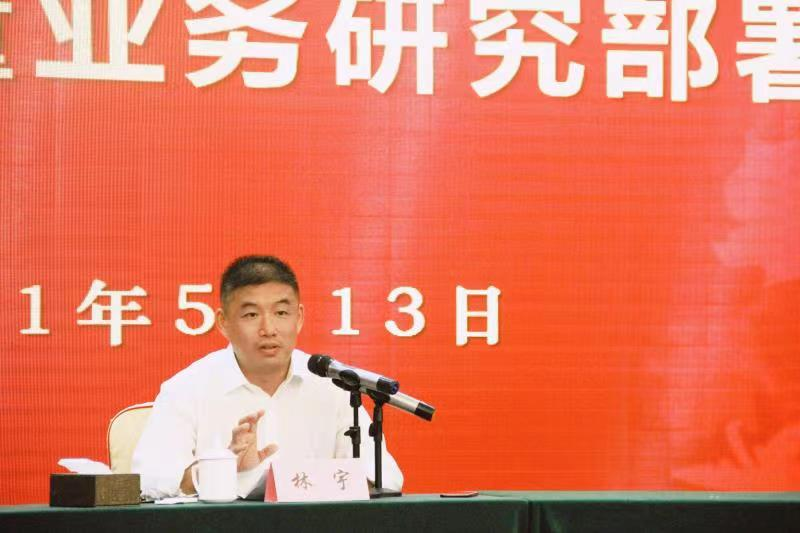
Qi Junguo, an expert from the MOU Evaluation Centre, was invited to give a special report entitled Openness, Positioning, and Development: Thoughts and Practices from the Design of Interim Assessments and Online Education Assessment. In the report, he reviewed the development history of the evaluation of higher education in China and interpreted the evaluation framework of modern distance education. He proposed that quality development should be the future direction of modern distance education and proposed both a theoretical basis and specific instructions for evaluation work in the operation of OUC branches.
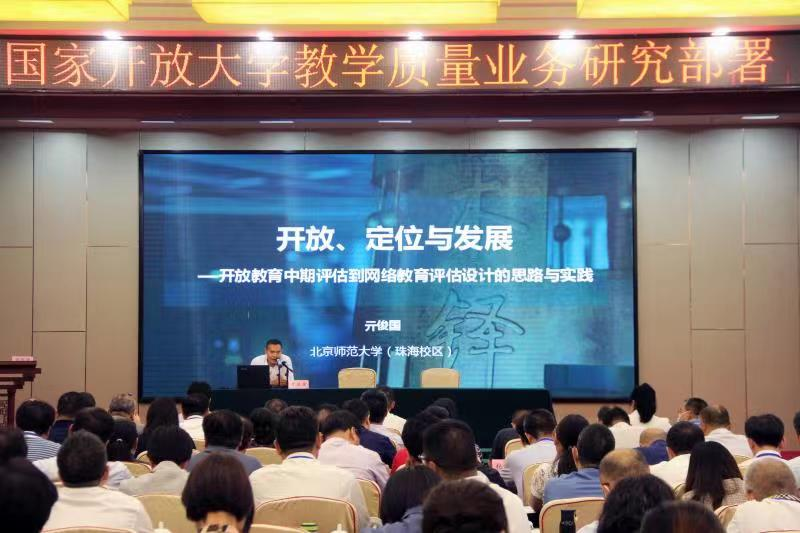
Han Yi, director of the OUC Department of Quality Monitoring and Control gave a work report entitled Working Hard to Make a Fresh Start in New Development: Phased Progress made in “Creating Excellence and Improving Quality” and summarised the discussions. The progress of quality work in the OUC educational system was summarised from the perspectives of enhancing quality awareness, performing the primary responsibility of supervision in running the university, business focuses including monitoring, evaluation, and supervision, the development of a quality assurance system, and the role of teams of expert. She also talked about the existing difficulties and problems. Her report also put forward ideas to promote future work and continue to defend the quality of the OUC system.
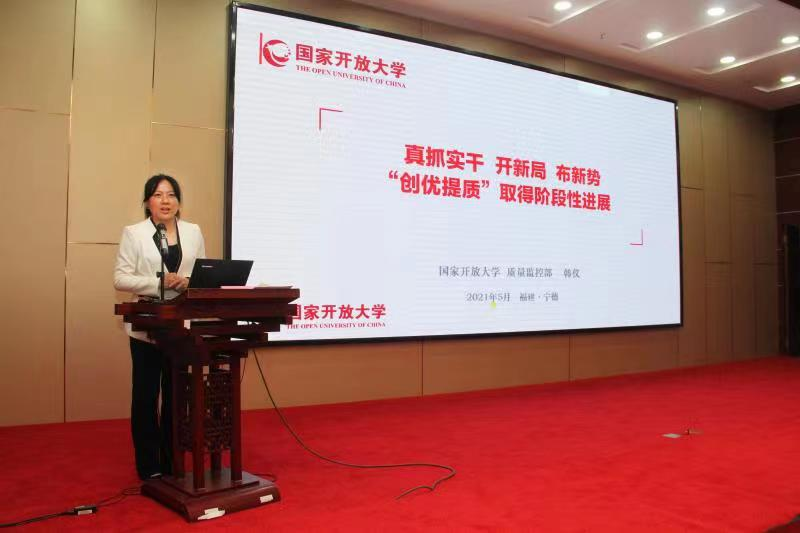
During an experience sharing session, the Hubei Branch introduced their measures for creating excellence and improving quality based on the three themes during each of the three years, touching on work style construction, capacity improvement, and systematic services. The Hebei and Fujian Branches introduced their experiences of organising evaluation development work, as well as their distinctive experiences in promoting construction, reform, standardisation, and development through evaluation. Based on a visit to Ningde Radio and TV University (RTVU) of Fujian Branch and the introduction given by Party Committee secretary Ye Zugeng, all the attendees gained an understanding Ningde, a key area where general secretary Xi Jinping once worked, as well as how Ningde RTVU has earnestly implemented the teaching process. They found out about the measures and results of talent cultivation quality by starting from the enhancement of the significance of open education, earnestly putting into effect the teaching process, and making effort to improve the quality of talent cultivation. The typical cases of “creating excellence and improving quality” shared by the attendees set an example for all from different perspectives.
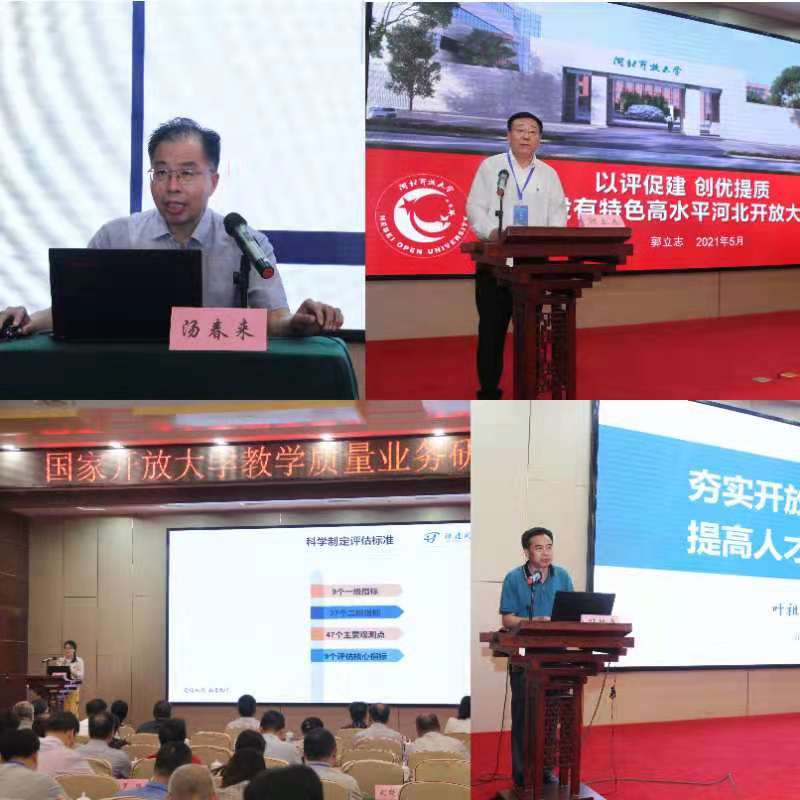
The group exchanges led to the consensus that the collective study and deployment marks a new stage for OUC quality control work in the first year of the 14th Five-Year Plan. This new stage marks a transformation from “seeking quantity to strengthening quality” and from external formative assessment and summative assessment to internal standard evaluation. All relevant parties will work towards quality in the new stage with determination, confidence, and sincerity, and work together to safeguard the reputation and brand of the OUC.
By Zhang Jun, OUC